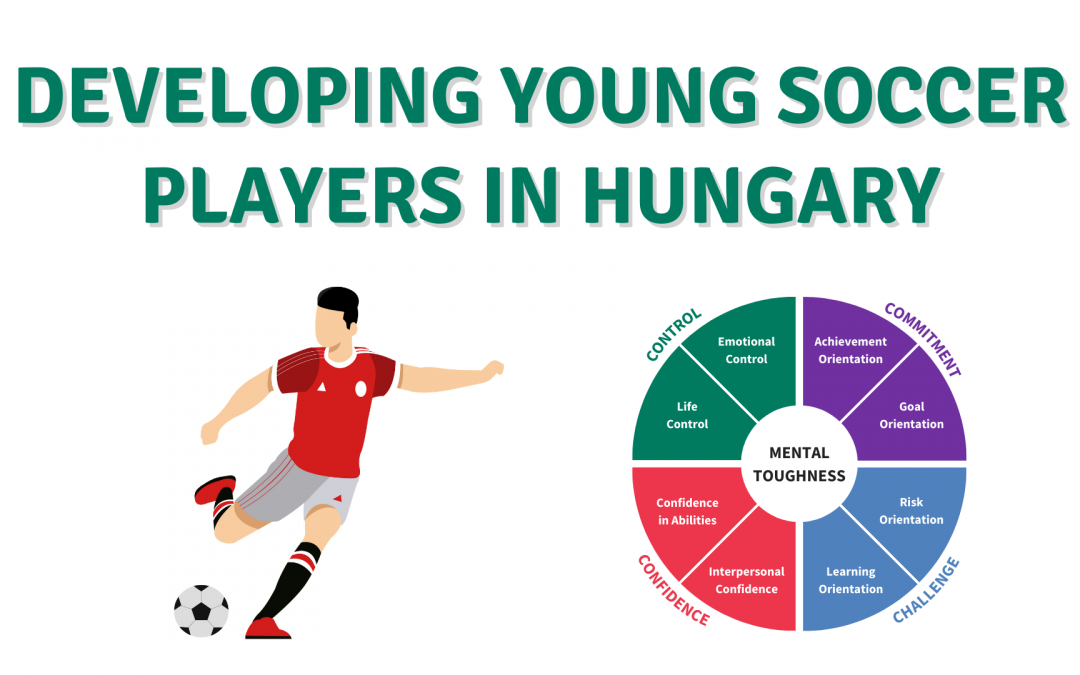An exercise in developing young people on the cusp of adulthood.
Szabolcs Hollosi is a Hungarian Coach who implemented a development programme for 10 young soccer players at an elite Sports Academy in Hungary between November 2021 and May 2022.
Mostly in their late teens, we know, from our work in education that the period which is roughly between the ages of 17 – 24 represents a time when young people make the transition from adolescence to adulthood.
For any young person, this is a critical stage in their development. For elite athletes who can peak by the time they reach their early 30’s this is doubly so.
The programme has produced several useful and valuable case studies which are shown in each article. They are anonymised for obvious reasons.
The programme begins with assessment and psychological profiling for each player which included the MTQPlus – the mental toughness questionnaire.
This was followed by a series of coaching sessions which used the information from the assessments. At the end, the players completed the MTQPlus test again to identify where differences had been achieved and what outcomes were apparent.
18-year-old footballer, who has played in NB1 (top tier) and currently plays in NB2 (the second tier of Hungarian soccer).
Characteristics identified included:
Goal-oriented, competitive, dominant, controlling, decisive, result-oriented, quick decision-maker, and very determined.
Needs identified included:
To become constantly challenging, meeting goals, improve decision making and improve communication with others by becoming more direct and more factual.
Areas agreed for development:
Patience, paying attention to prioritizing goals, preventing overwork/ burnout, managing stress, increasing self-confidence, error management, listening to others, communicating more openly, developing verbal skills, being more open to learning new things, and developing emotional control.
Before and after MTQ Profiles are shown below (An English version is shown below)

What emerged:
Increased mental stamina (tenacity) was identified. Improved levels of emotional control, risk orientation and belief in his abilities were the most significant changes.
In discussion, it emerged that his father had been very critical of him and his abilities since childhood. So, improving self-belief proved to be a huge achievement for him.
The programme included 3 coaching sessions (between Nov 2021 and May 2022).
The sessions explored gathering resources, developing assertiveness, monitoring and building a pre-match routine. The final session focused on preparing for the International Summer Cup in Hungary (match planning: what do you want to achieve mentally before the match and achieve in the game.
The player’s assessment of the programme and its impact on him is summarized thus:
”After each session, I felt that I had improved mentally. My self-confidence has increased, and I have learned to handle things differently that I couldn’t before (managing my emotions and being calmer).
I have also improved in asserting my self-interest, for example, I have become much more confident in penalty situations and I have realised that if I look after myself a bit more and not just the interests of others I will come out on top and not the other person, whilst at the same time I have been able to remain a team player.”
The MTQPlus is one of the best-evidenced personality measures available anywhere. Moreover, unlike most personality measures which are behavioural, the MTQPlus assesses an individual’s mental responses. These are significant in influencing and explaining behaviour.
For information about becoming a licensed user of the MTQ suite of measures contact: headoffice@aqrinternational.co.uk
The MTQPlus measure is available in fourteen languages, accessible to more than 2/3rds of the world’s population.
Completion of the AQR Licensed user training programme is recognised by EMCC and ICF for CPD purposes.
| Before | After | |
| Sten scores | ||
| Overall MT | 4 | 5 |
| CONTROL | 4 | 4 |
| Emotional Control | 3 | 4 |
| Life Control | 5 | 5 |
| COMMITMENT | 5 | 6 |
| Goal Orientation | 5 | 5 |
| Achievement Orientation | 5 | 6 |
| CHALLENGE | 3 | 4 |
| Risk Orientation | 3 | 5 |
| Learning Orientation | 4 | 4 |
| CONFIDENCE | 4 | 5 |
| Confidence In Abilities | 5 | 6 |
| Interpersonal Confidence | 4 | 4 |


